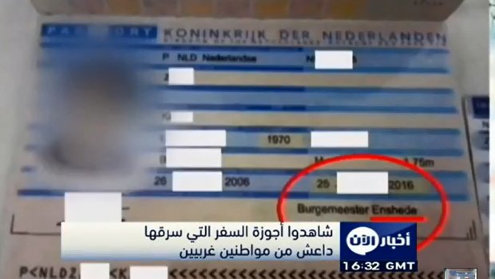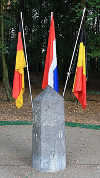 OK, so this is completely unscientific, but I decided to have a little fun.
OK, so this is completely unscientific, but I decided to have a little fun.
If the Dutch want to use a derogatory term for a journalist, they have a couple of options. Persrat (press rat) is one of them, persmuskiet (press mosquito) is another.
According to Google, persrat appears on 10,600 web pages, while persmuskiet appears 12,700 times. There is not much between them and Google is hardly the place to do reliable linguistic research, but since we had already decided this wasn’t going to be scientific I declare ‘press mosquito’ the winner.
A derogatory term for the entire profession is journaille, borrowed from the German language in which the word is a portmanteau consisting of the word ‘journalistic’ and the French word ‘canaille’, meaning ‘rabble’.
Dutch comics godfather Marten Toonder used to have a rat in his fabled stable called Argus, who was of course a reporter (working for a publisher called E. Phant).
To me the word persrat feels different from persmuskiet. Rat seems to suggest a low character, whereas mosquito implies tenacity.
Are you wondering if there is perhaps a reason to this whim of mine? There is. I was getting a bit tired with the news cycle, with the whole idea that there is always news and it is always important. Trying to find a Dutch angle to the British horsemeat scandal (British supermarkets selling horsemeat as beef), reporters of the Parool newspaper had tracked down a restaurant owner who had kept quiet about having used horsemeat instead of beef for his famous steaks for 60 years—even in the Netherlands there is a bit of a stigma attached to eating horsemeat. “Why did you lie,” the reporters asked and that irked me. Sure, the restaurant owner had lied by omission, but every word a journalist ever prints is a lie of omission, because journalists decide what is important enough to print and what not.
And that is when I got a little bit irritated and started thinking in terms of ‘press rats’.
(Image by A.E. Goeldi, in the public domain)



 People who speak Dutch with a foreign accent are just as easy to understand as native speakers. Listeners may need a while to adapt to the accent, anywhere from a few sentences to a few minutes.
People who speak Dutch with a foreign accent are just as easy to understand as native speakers. Listeners may need a while to adapt to the accent, anywhere from a few sentences to a few minutes. OK, so this is completely unscientific, but I decided to have a little fun.
OK, so this is completely unscientific, but I decided to have a little fun. This cute video by filmersblog.nl shows Dutch people aged 1 – 100 tell their age.
This cute video by filmersblog.nl shows Dutch people aged 1 – 100 tell their age. 


 Visitors to the Netherlands have noticed the phenomenon before, but now a judge has confirmed it: English has become common in the Netherlands. So common, that the use of an English word in a trademark no longer makes that trademark automatically unique. The owner of the “Runner Hardloopcentrum Groningen” trademark found this out last year when it tried to stop a competitor from trading under the name “Runnersworld” through the courts.
Visitors to the Netherlands have noticed the phenomenon before, but now a judge has confirmed it: English has become common in the Netherlands. So common, that the use of an English word in a trademark no longer makes that trademark automatically unique. The owner of the “Runner Hardloopcentrum Groningen” trademark found this out last year when it tried to stop a competitor from trading under the name “Runnersworld” through the courts.